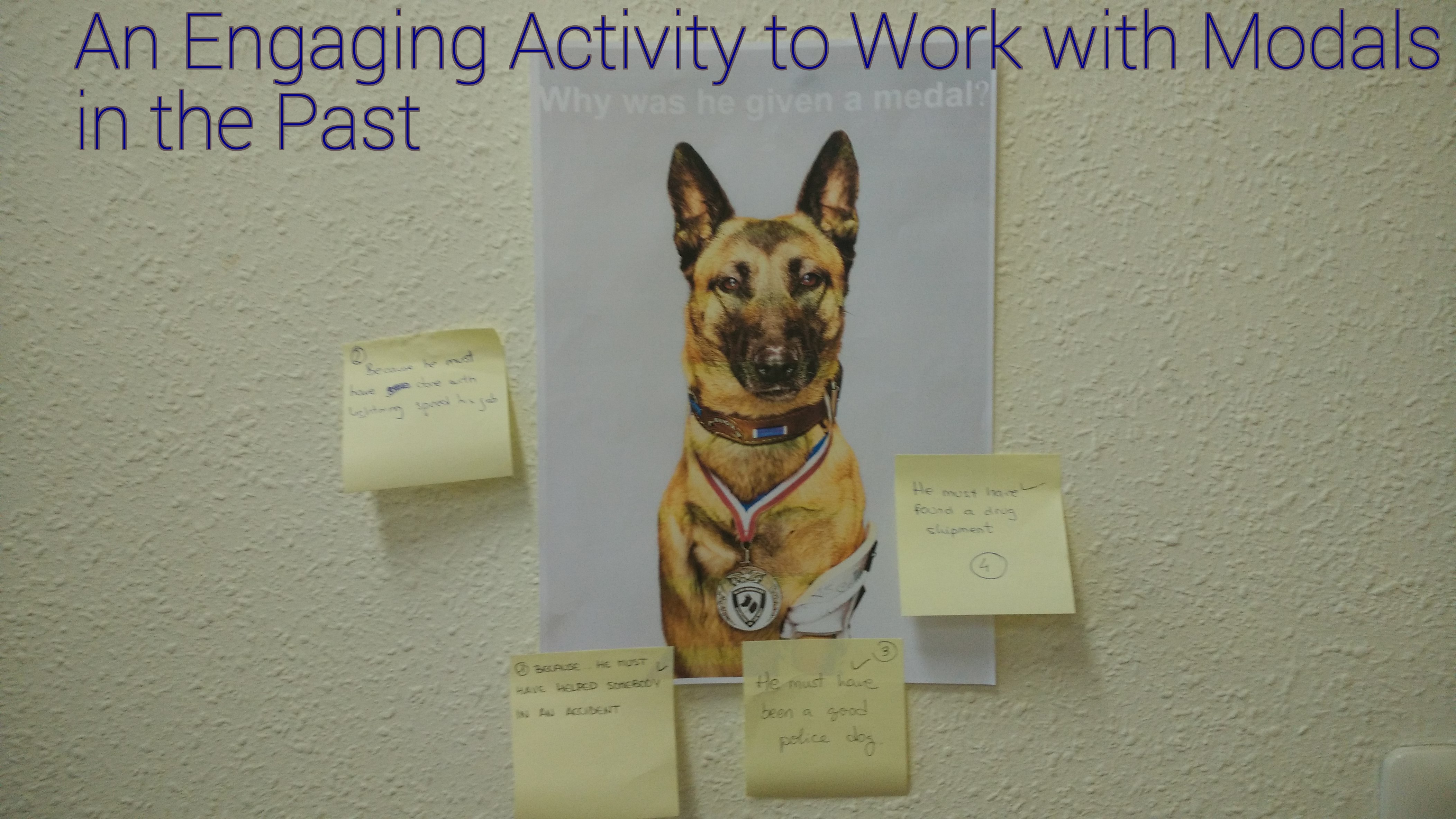Dear readers,
Let me start thanking you for all your comments, likes and shares on my posts. That’s really encouraging!
In today’s post I want to share with you an activity I did with my B2 students that worked really well. It’s the kind of activity that I like because it includes movement and it encourages interaction between students. The focus is on grammar but, at the same time this activity gets them out of their seats and moving. They will need to interact with other classmates and use English to discuss English grammar while having fun at the same time. So, what else could one wish for?

Aim: The focus of this lesson is on students integrating grammar, speaking and writing using modals of certainty and possibility in the past.
Level: B2 (upper intermediate)
Time: 20-30 minutes
Materials: post-it notes and pictures to display (see mine here)
Although this is an activity to reinforce learning and the grammar should have been explained beforehand, it might be a good idea to revise orally or on the board the targeted grammar.
Warming-up
Remind students of the use of the structure modal+have+past participle to make suppositions about actions that did or did not take place in the past.
Explain that for this activity they will be working with the modal “must” to speculate about the past and with the modals could/may/ might in the past to discuss different possibilities. Drill pronunciation of must/might…+have+past participle
- Must have been | ‘ mʌstəv ‘biːn |
- might have gone | ‘maɪtəv ‘ɡɒn |
The Task
On the walls of the class display the pictures you want to use. See the ones I used here. Ask students to try to guess the answers to the questions in the pictures and then, write them down on the post-it notes provided using the modal must in the past to speculate about what must have happened. Tell them that on the back of each picture you have written the answer to the question. They’ll win one point if their answer is the same as the one written on the back of the picture.
Procedure
- On the walls of the class display the pictures you want to use.
- Ask students to work in threes.
- Give each group a different number and some post-it notes. You will need to give them as many post-it notes as pictures on the walls. They will need a post-it note for each picture.
- Now, ask students to stand up and have a look at the different pictures.
- In their groups they will have to discuss the different possibilities using the structure may/might/could +have+ past participle.
- Then when they reach an agreement, they will need to write their suggestion on the post-it note using the modal “must” in the past. Ask students to write their assigned number on the post-it note. Ex. He must have saved someone or he must have discovered a bomb
- Ask students to sit down. Take the first picture and turn it around. Read the sentence explaining the picture. Read the post-it notes to see which group guessed correctly. Award them one point. Needless to say, the winner is the group that gets more points.
Thanks for reading!